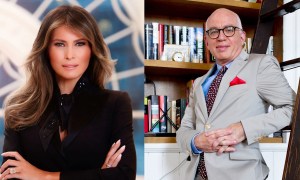Justin Trudeau, the 53-year-old prime minister of Canada, has announced his resignation and suspended parliament while his party selects a new leader.
Embattled by internal strife, Trudeau, who has led Canada since 2015, stepped down after a leadership election on Monday. The suspension of parliament until March 24th aims to avoid a confidence vote in his minority government, potentially triggering an early federal election.
Trudeau acknowledged that his leadership was no longer effective in leading the Liberal party into this year’s election. He stated, “It has become clear to me that if I’m having to fight internal battles, I cannot be the best option in that election.”
The decision was made during the Christmas break, and Trudeau shared the news with his children over dinner on Sunday.
Recent polls indicate a significant disadvantage for the Liberals against the opposition Conservatives in the upcoming October 20th election.
Trudeau, the last major Western leader from the pre-Trump era, has been grappling with dissent within his party for weeks. Chrystia Freeland’s resignation, citing differences over “gimmick” policies aimed at boosting his declining poll ratings, sparked a mini-revolt by 24 of his party’s MPs last month.
Trudeau’s weakened position on the global stage was further compounded by Donald Trump’s re-election as US president on November 5th. The strained relationship between Trudeau and Trump escalated, leading to a series of taunts that plunged Ottawa into crisis mode regarding a potential trade war with the US.
Trump repeatedly joked that Canada should become the “51st state” of the US to avoid tariffs of up to 25% on its exports. Trudeau’s situation was further exacerbated by Trump’s re-election.
Reacting to his resignation, Mr. Trump expressed his belief on his Truth Social platform that “many people in Canada are thrilled to become the 51st state.”
He asserted that the United States can no longer endure the substantial Trade Deficits and Subsidies that Canada requires to remain afloat.
Mr. Trudeau, who was aware of this situation, resigned accordingly. If Canada were to merge with the U.S., there would be no Tariffs, taxes would significantly decrease, and they would be completely protected from the persistent threat posed by Russian and Chinese ships that constantly surround them. Together, they would form an extraordinary Nation!
As the leader of a minority government following the collapse of a confidence-and-supply deal with the left-wing New Democratic Party last year, Mr. Trudeau is susceptible to confidence motions in Parliament.
Pierre Poilievre, the leader of the Conservative Party opposition, has repeatedly attempted to compel Mr. Trudeau into an early election through parliamentary votes intended to demonstrate his unpopularity among MPs.
On Monday, he called for a “carbon tax election,” urging Mr. Trudeau to expedite the federal vote scheduled for later this year.
Mr. Trudeau, whose father Pierre Trudeau also served as Prime Minister, gained power in 2015 with the promise of delivering affordable homes, a prosperous middle class, and a climate-conscious, inclusive society.
However, many Canadians argue that the “great Canadian dream” he promised never materialized, while the federal budget deficit has surged.
Mr. Trudeau continues to bear the scars of Trump’s first term in office, and a botched immigration policy resulted in the arrival of hundreds of thousands of new immigrants.
His government’s decision to impose a carbon tax and offer asylum to more migrants has proven unpopular, particularly in light of the high inflation and grocery prices.
On Monday, Mr. Trudeau declared himself a “fighter,” stating at a press conference: “Every fiber of my being has always urged me to fight because I deeply care about Canadians.
“I deeply care about this country, and I will always be driven by what is in the best interest of Canadians.”
He asserted that since 2015, he had bolstered the middle class, supported Ukraine, and aided the country’s recovery from the pandemic.
His decision to suspend parliament is likely to spark controversy with opposition parties and may face legal challenges.
The Canadian prime minister possesses the authority to request a prorogation from the country’s governor general, but conventionally employs this power solely in the nation’s best interest.
Mr. Trudeau’s critics will likely argue that he has sent MPs home to avoid a confidence vote, thereby granting his party time to elect a more popular leader and regain its standing before the election.
The rules for the Liberal leadership election will be outlined in the coming weeks. Early contenders to succeed Mr. Trudeau include Ms. Freeland and Mark Carney, the former governor of the Bank of England in Canada.













